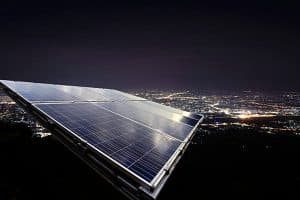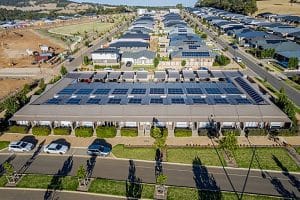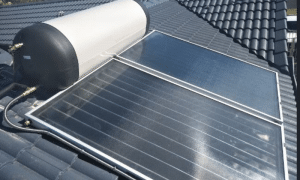Renewable energy sources such as wind and solar power have always faced the challenge of energy storage due to the intermittent nature of the power source. Deep cycle batteries are most commonly used, but still relatively expensive, bulky and more suited to small to medium scale off grid situations.
Given the increasing harnessing of wind and solar power, much research is under way for more effective energy storage solutions to allow for the provision of baseload power on a large scale or in energy intensive applications such as electric cars. In the past we’ve covered interesting solutions including lithium-air, virus, cavern, molten salt and beltway batteries.
Capacitors have also shown a great deal of promise, but while offering high power and fast recharge, the necessary energy density remains an issue.
Researchers at the Maryland NanoCenter at the University of Maryland, College Park, say they have developed new electrostatic nanocapacitor systems for storing electrical energy derived from renewable sources that are up to 10 times more efficient than what is commercially available – without sacrificing the high power aspect.
Using new processes, millions of identical nanostructures are created with shapes tailored to transport energy as electrons rapidly to and from very large surface areas where they are stored. Efforts are under way to achieve comparable advances in energy density of lithium (Li) ion batteries but with much higher power density.
The researchers are also developing the technology for mass production as layers of these devices that could look like thin panels. Multiple energy storage panels could be stacked together inside a car battery system or solar panel.







































